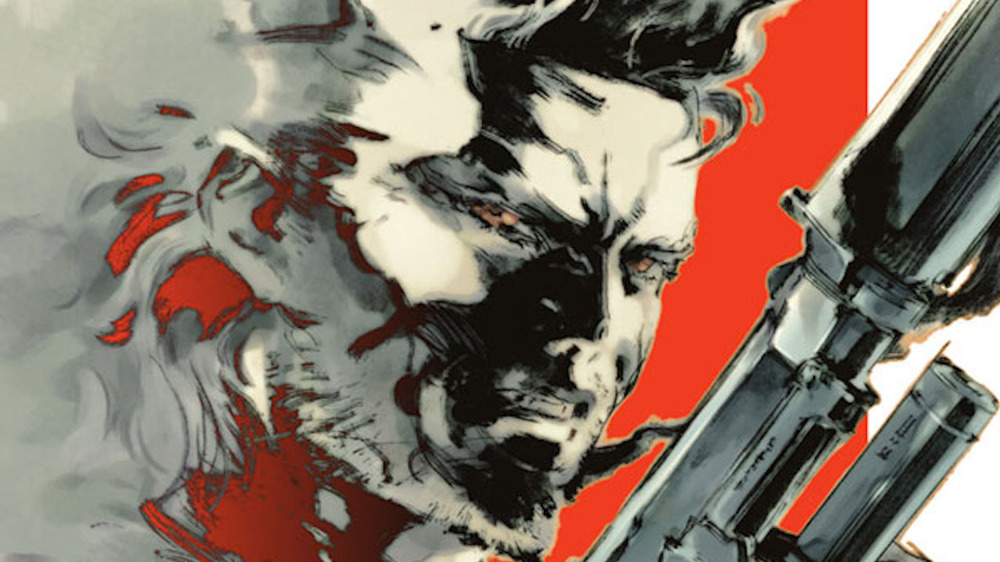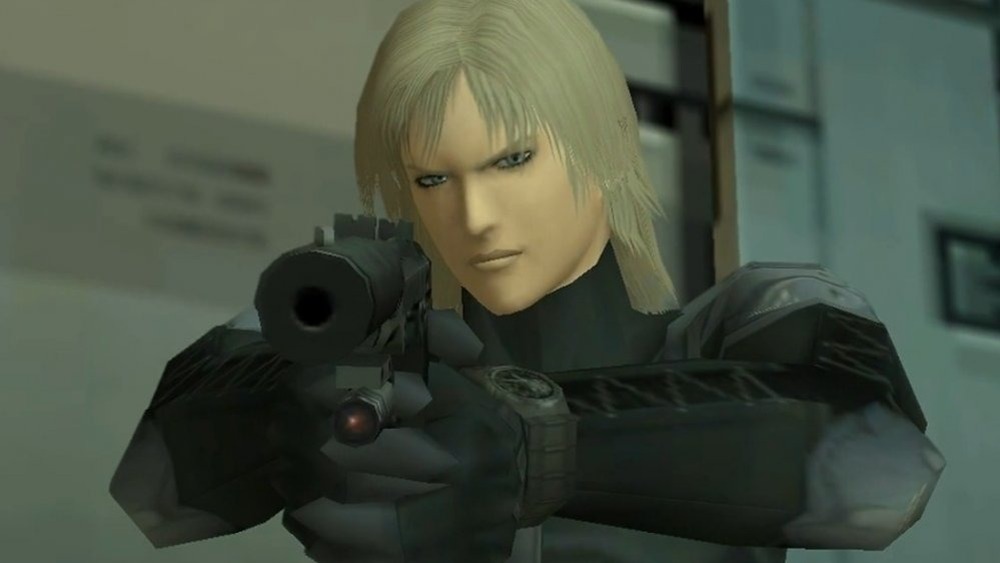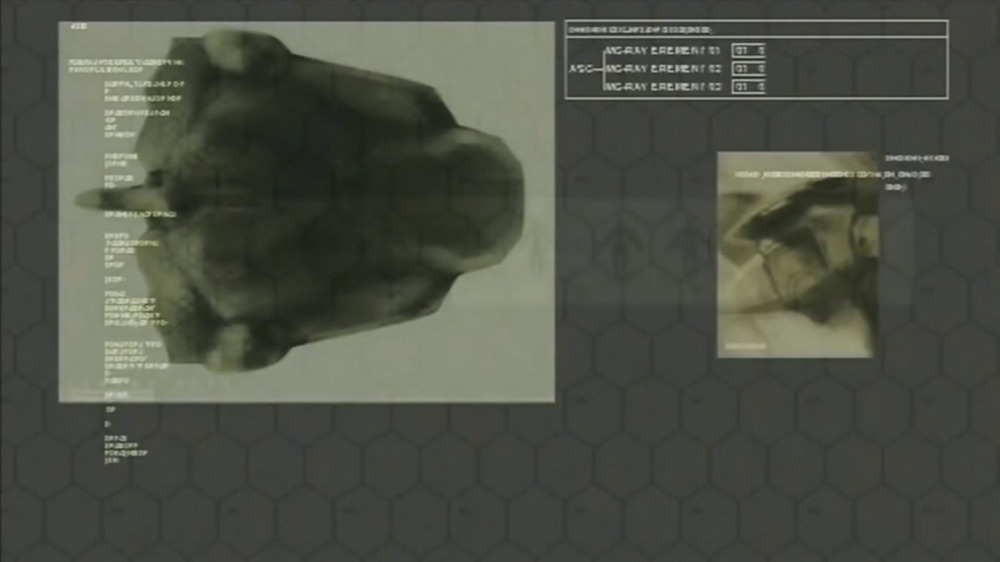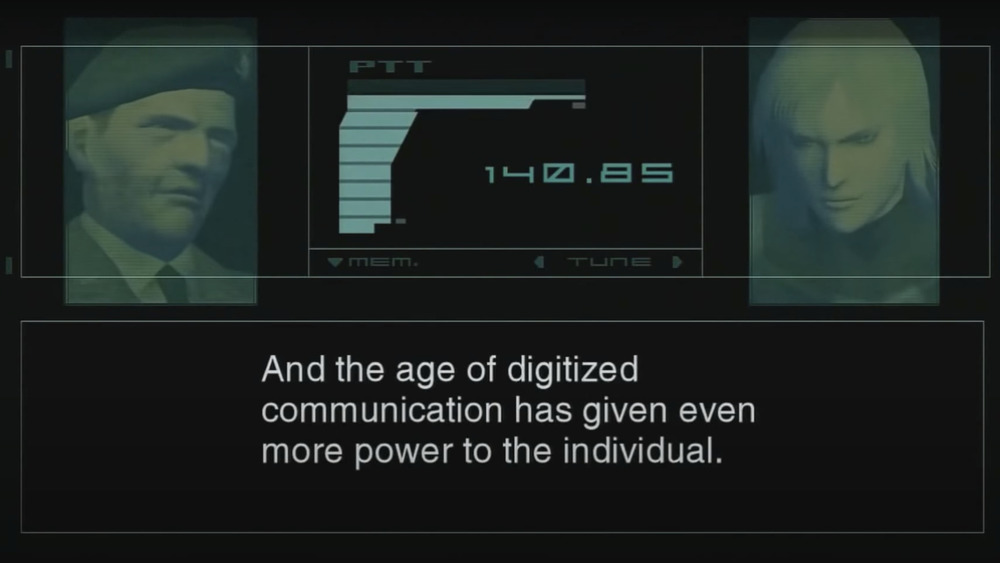This Is How Metal Gear Solid 2 Predicted Society's Fake News Problem
It's April 30th. Arsenal Gear, a massive submersible fortress, has just crash-landed into Manhattan, spilling you onto the roof of Federal Hall. It's the same location and date as the inauguration of George Washington as the first president of the United States. It's the perfect setting for a katana duel as Raiden faces down his old mentor and former U.S. president Solidus Snake. If you're new here, welcome to the batty world of Metal Gear Solid 2: Sons of Liberty.
Before this battle can begin, players are treated to some of game designer Hideo Kojima's trademark philosophical monologuing that made Sons of Liberty one of the more politically stirring games of the early 2000s.
While the first two acts of the game were based on the kind of stealth action and wacky anime supervillains that hooked so many fans from the first Metal Gear Solid in 1998, the third act in Sons of Liberty takes a more political tone that the franchise embraced in future games. In its own convoluted way, the game predicted an era where fact can be interchanged with fiction that looks a lot like the real world.
What even is "fake news?"
The term "fake news" has been around for more than a century at least, according to Merriam-Webster. The phrase is often used by public figures and organizations to describe news that hurts their public image, whether "fake" or not. But the truth about fake news is that it is published to deliberately deceive. Although the term never comes up in Metal Gear Solid 2: Sons of Liberty, this kind of deliberate deception is a major theme (in more ways than one) in the middle of the second act, when the player learns the truth about their mission.
Sons of Liberty does a really great job of always teasing the player's sense of reality from the get-go. With the introduction of Raiden as the main character of act two, things are never quite what they seem throughout the game. All pretenses are dropped when you attempt to rescue the president, who has been taken hostage along with a group of government staff. After an incredibly inappropriate crotch squeeze by the president (we're still confused why this was written into the game), he tells you about the shadow government running the United States called the Patriots.
Control the information, control the people
The Patriots, sometimes referred to as the La-li-lu-le-lo, hereby take the reins as the Metal Gear series' main bad guys.
"Politics, the military, the economy, they control it all. They even choose who becomes president. Putting it simply the Patriots rule this country. Hard to believe, isn't it? But it's the truth," the president tells you. "The people are shown what they want to believe. What you call government is actually a well-staged production aimed at satisfying the public."
The events of acts one and two are both just extremely elaborate fronts for the Patriots' construction of a new Metal Gear, dubbed Arsenal Gear, the president says. (It gets much weirder by the end of the game.)
"Arsenal Gear is more than just a military tool. It is a means to preserve the world as it is. It will establish a new form of control. The Patriots will use it to keep their place as the country's true rulers," the president says. "The Arsenal plans include a system to digitally manage the flow of information making it possible to shape the 'truth' for their own purposes."
Context over content
The Patriots' plan to control the United States by shaping the "truth" sounds a lot like censorship, but they say their goal is "not to control content, but to create context."
Back atop the Federal House, we get a Codec call before the final battle. It's the Patriots' AI in the guise of our mission control. It laments the "junk data" being pumped into our society by the internet. "It will only slow down social progress, reduce the rate of evolution," it says. "The digital society furthers human flaws and selectively rewards the development of convenient half-truths. ... Everyone withdraws into their own small gated community, afraid of a larger forum. They stay inside their little ponds, leaking whatever 'truth' suits them into the growing cesspool of society at large."
Twenty years later, these words have an eerie truth to them – albeit somewhat ambiguously. It's unclear what the game is getting at here, and players could interpret the message in a number of ways. One interpretation from GamesRadar suggests that Metal Gear Solid 2: Sons of Liberty was a warning of behavioral engineering and social profiling that we've seen from data firms like Cambridge Analytica.
"You can find your own name. And your own future..."
Information warfare, sentient computers, and control through subversion were major themes in an era when the internet was kind of anyone's guess. These topics are also explored in '90s films like The Matrix and Ghost in the Shell. The game is still kind of a bewildering mess, but there was a lesson: Truth and reality are not always the same thing. Players learned firsthand how fact could blend with fiction and how much information we often take for granted.
"Who am I really?" Raiden asks after the final battle of the game. Snake emerges from the bustle of New York City as officers rush to Federal Hall. He tells you that no one really knows who or what they are. Putting his hand on your shoulder, he says, "There's no such thing as absolute reality."
"Listen," Snake says. "Don't obsess over words so much. Find the meaning behind the words, then decide. You can find your own name. And your own future."





